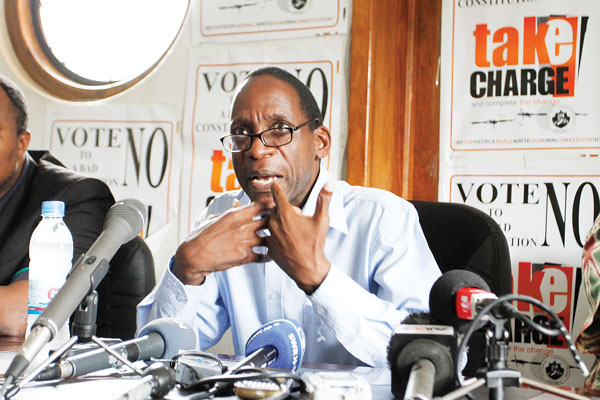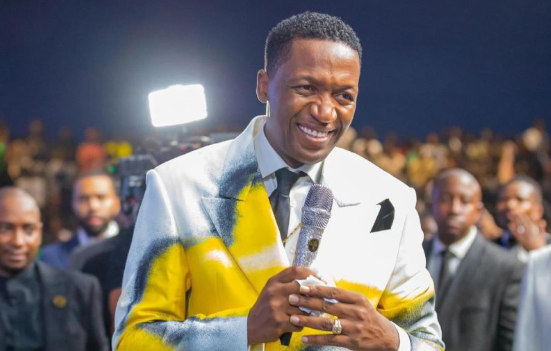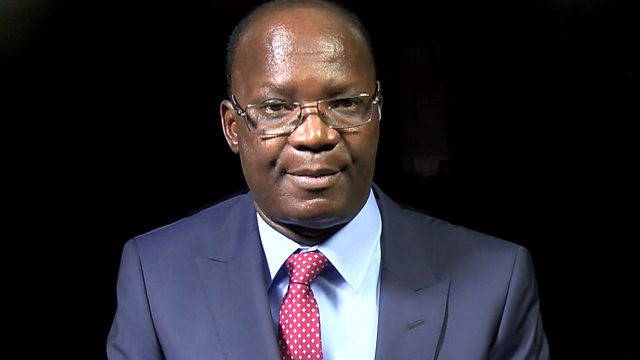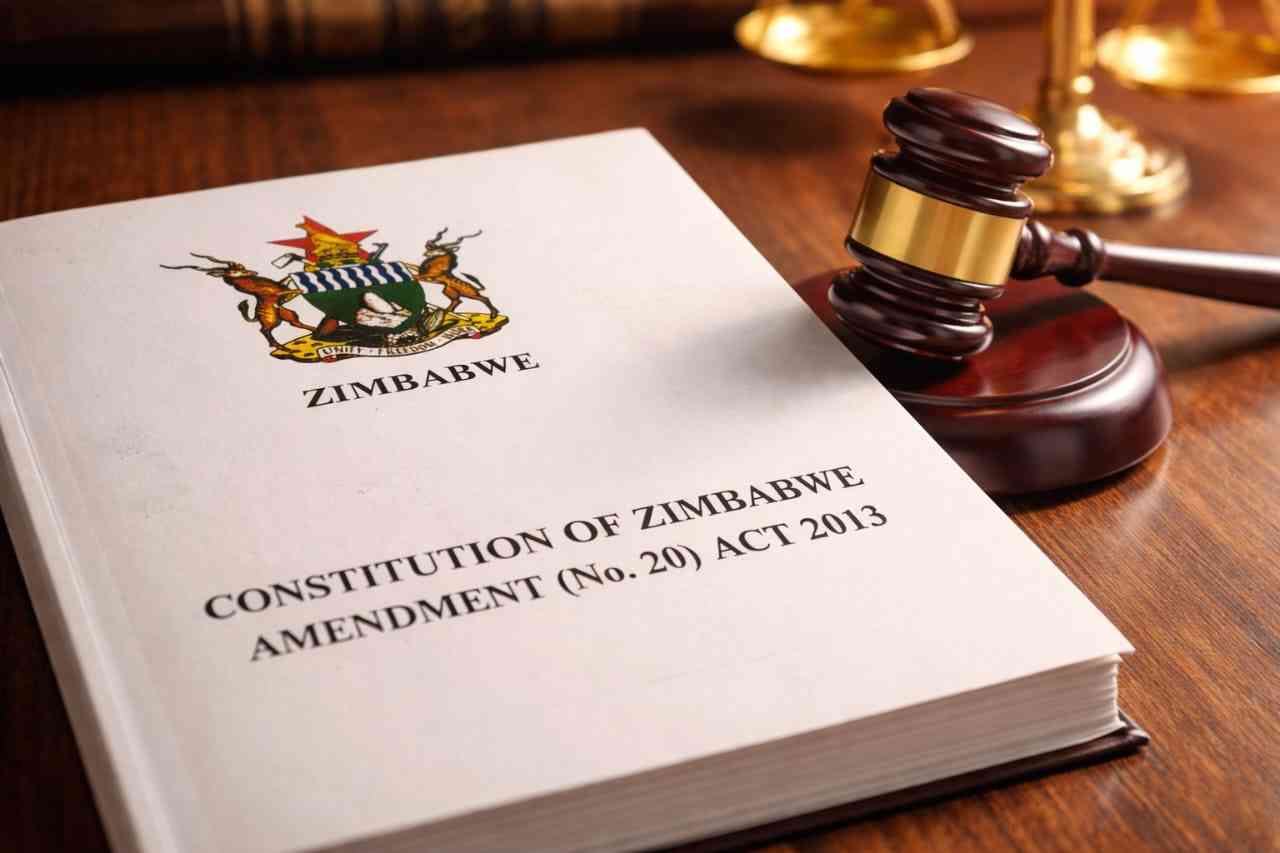
A commission set to investigate the August 1 deadly shooting of protestors began public hearings last week to establish what led to the killings.
The big interview BY VIOLET GONDA

The inquiry led by former South African president Kgalema Motlanthe has been criticised for its alleged bias because some of its members are linked to Zanu PF.
Journalist Violet Gonda (VG) interviewed one of the commissioners, Lovemore Madhuku (LM), who insisted that the investigation will be conducted in a professional manner.
He revealed that the military and police will appear before the commission to give their version of the events. Below are excerpts from the interview.
VG: How are you feeling when it seems many of the people who have came out today, especially from the MDC questioned your role in this commission. They say you are not an impartial commissioner. They have also mentioned Charity Manyeruke and Vimbai Nyemba.
LM: We are very impartial and they know we are very impartial. So we really have no issues with that. I think that they are just playing politics. I think there is no basis for anyone to suspect that we can have any secret agendas, why should we have a secret agenda?
VG: Don’t you think people are justified to point that out that this is not a neutral commission given it has Zanu PF people?
- Chamisa under fire over US$120K donation
- Mavhunga puts DeMbare into Chibuku quarterfinals
- Pension funds bet on Cabora Bassa oilfields
- Councils defy govt fire tender directive
Keep Reading
LM: Well, I am not sure what they should have done. I am not the one who made the appointments, but all what was required was to get three Zimbabweans to add to four non-Zimbabweans who constitute the majority there and they are very independent. We were appointed not so much from any political angle. Vimbai is a lawyer. I am an academic, constitutional law academic and then Charity was appointed for her political science.
The understanding that we got from the appointing authority was that it was an independent commission based on expertise that has nothing to do with political regions, and that when we to do the work that we are doing we are never going to utilise that political formula.
VG: Why is it that the commission seems to be interrogating the victims and also opposition supporters more than the Zanu PF supporters?
LM: Well, I think it’s a very misleading observation you have made. This is just the beginning of a long process of public hearings, we are going to hear everyone and the secretariat was going by on a first come, first served basis. The persons that gave evidence yesterday were persons that were the first ones to attend to the invitation to come. So we decided that we would not analyse the evidence before calling them.
We will actually hear every person as they were coming, so they are going through a list [and] I think you heard them saying this is the witness for day one, witness for day two, that whole book goes to witnesses for day nine and its simply by first come, first served basis.
So it’s clear that those people from the Zanu PF provincial office all decided to come for their own best reasons.
So we actually made a deliberate decision that let’s not make decisions prior to hearing evidence.
Even when they were coming, we were just hearing people as they were coming. You will be surprised that the next few hearings, I mean the next days of the hearing process, there will be lots and lots of persons that will be giving different evidence.
VG: Some have argued the line of questioning by commissioners like Manyeruke is targeting victims. What is your comment on that?
LM: Well, I think let’s be very sure that there can be no basis at this point for characterising the commission as following any partisan direction because while we are here, we are listening to evidence. You will be surprised when you read the report, the report is going to be a very objective assessment of what actually happened on August 1 because our terms of reference are to determine what happened.
We will tell the people from the evidence what actually happened.
We would want to then see after our report who will say this did not happen because what is coming out at the moment is the evidence of the first persons that rushed to give their evidence and these persons came from the Zanu PF provincial office.
I am sure they are now finished. I am not sure how many people Zanu PF employs at their provincial offices because even as a commission, we kept wondering how many people are employed there, many people came in the name of being employed by Zanu PF.
We will make an assessment, in fact, not just an assessment on what we heard, but we will even make a determination whether that particular witness was actually employed.
So people are jumping the gun, we are taking notes and we are asking questions, but we will make a determination on a factual basis.
Even if we were to have a million people claiming that we were employed by Zanu PF and say ‘I worked at Zanu PF headquarters. I was there on this day’ that is not the end of the matter, that is simply what they are telling us.
We will make an assessment. We might determine that some of them were never employed and they were not giving correct evidence, all this is for assessment.
VG: But when are people going to hear from the soldiers who were on the streets, the soldiers that shot the people and also the police?
LM: Yes, I think first they are all going to testify.
VG: So you have their names already?
LM: We are making arrangements for them to come.
We have said firstly let’s get to hear from the non-security people, so we hear from everyone who is not the police and who is not the army.
And then once all that evidence has come, we will then face the army with all the evidence.
They have to answer to each and every assertion of fact by the witnesses.
So you cannot just bring the army in front, it’s like putting the cart before the horse.
You should make it clear to the public and everyone that you are informing as the media that this is a process which is well thought out, at the end we just have to hear, look at those people saying the bullets were coming from all over the place.
When the military comes, we then ask them those questions because they will have to respond to each and every question.
You saw a bit of it today when we were asking (Lovemore) Chinoputsa his evidence, for example that there was no MDC person, I mean all those protestors were not related in any way to the MDC? I wanted him to help us because then we heard the name of that person from Epworth, who is deceased and you were there when the evidence was given that this was an MDC member, so he will have to respond.
We are not saying whether that is true or not, but they will have to be responding to what? So the army will be coming, the police will be coming.










